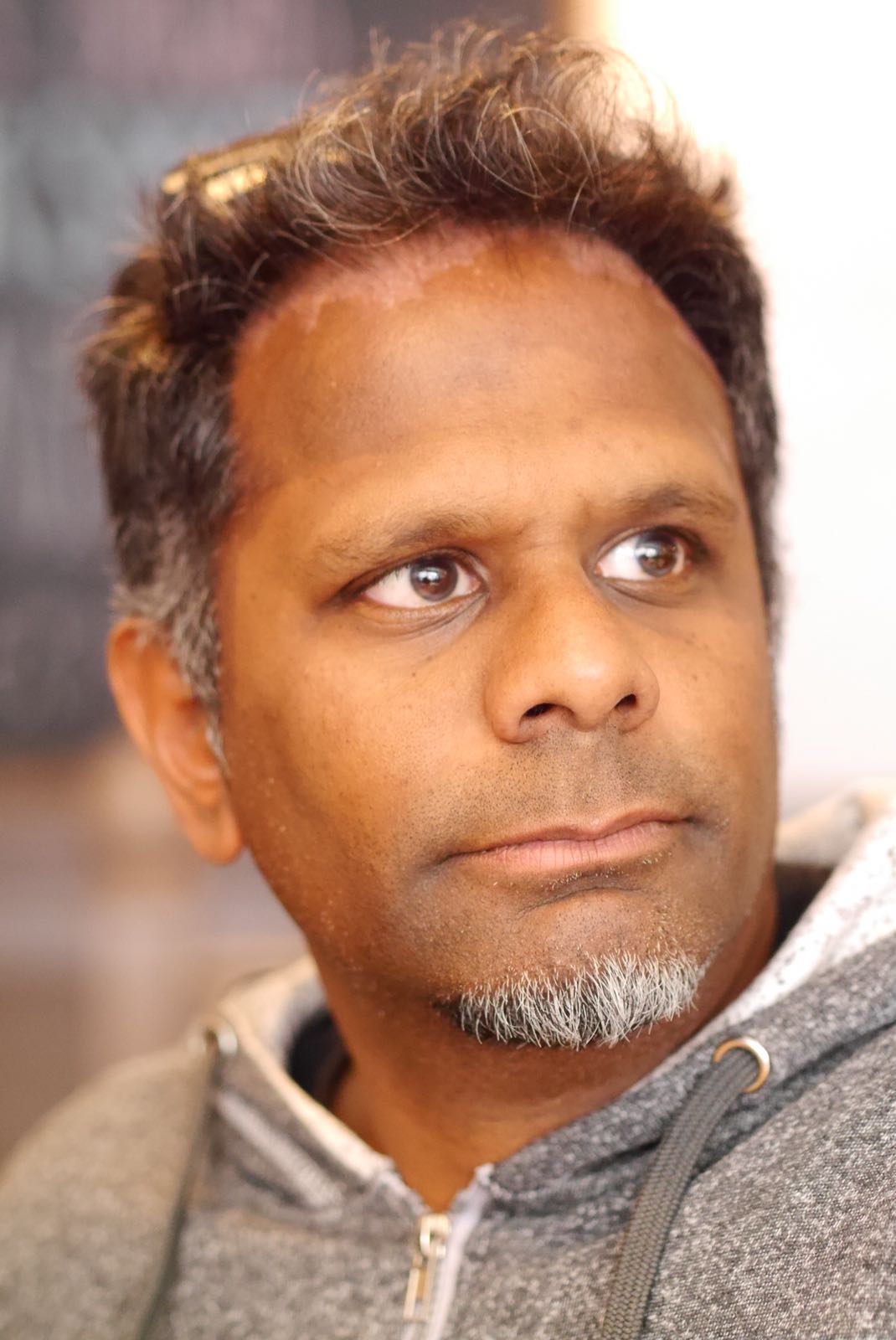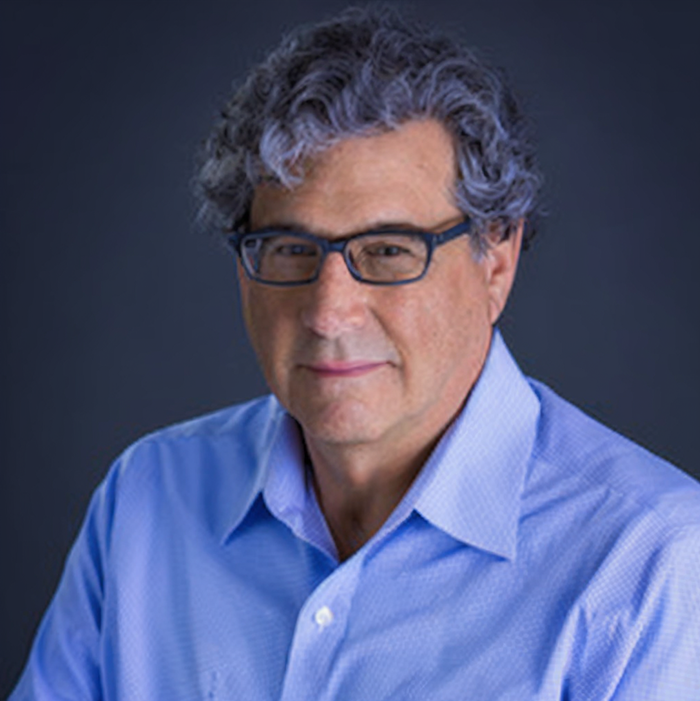The emotional baggage we bring to work with Jeff Saperstein
- 0.5
- 1
- 1.25
- 1.5
- 1.75
- 2
Speaker 1: Business school.
Darryl: All right folks. Welcome to the latest episode of the Business School podcast where we discuss new and emerging trends and the kind of stuff that you may not read in a business textbook. I think we're definitely going to hit on that kind of topic today. Very happy and humbled to be joined by Jeff Saperstein, who I've had the privilege of knowing for some time, but has had the opportunity to work in many different spaces. Jeff, I can just turn it over to you and ask you to introduce yourself.
Jeff Saperstein: Thank you, Darryl. It's a pleasure to be with you. One thing is I've had a 50 year career, five- zero, which kind of makes one look back and realize that there were so many stress points in which there was high anxiety. You wonder what was that all about? Some of what we go through are predictable and some things we hit adversity and we're not quite sure what the path is. I've had a corporate background. I was in the advertising business working on packaged goods in New York, and then I went to work at Foote, Cone& Belding on Levi Strauss business. I was on that business for about five years. I had a really good sense for corporate work, corporate organization back in the seventies and eighties. Spun off to work in the nonprofit world as a marketing director and then became a marketing consultant. I moved into from advertising to marketing and in that role really developed feasibility studies and looked at my talents and skills and ways of working that had accumulated in the ad business for me. Over time, went to teaching and universities and was an adjunct faculty person in different universities, including in Europe, primarily at San Francisco State University in the college of business. I became a professional writer and later in my career became a career coach and memoirist. When you look at this trajectory of going from the corporate hierarchy to spinning off into nonprofit, to then working on multiple levels, having a level career of teaching, writing, et cetera, one thing that I learned is it's better to think of oneself as a collection of skill sets and experiences that you can utilize rather than a particular title of, " Oh, I'm an ad guy, I'm a marketing guy, I am a production guy." Or whatever, or gal. I'd like to start with the fact that now I am utilizing my writing skills, my coaching skills, my business skills, all in the service of career coaching for people who are interested in making career transitions as well as people who have been successful, who want to look back on their life, figure out who they are, why they are, and to connect the dots. That's a good place for me to be right now.
Darryl: Yeah, you've definitely been a lot of different places and I love that idea that you said around this, that sometimes we tend to think about jobs and we define ourselves in those respects, but that aspect of skills and know that's something we'll come back to later in this piece as we go through this. To touch on something that you wrote about recently, and I'll say it really touched me, there was an article that you wrote about the idea of things like guilt and guilt and how that fits in with, and this is writing from a business perspective, touched me for a couple of different reasons. One is that it felt like it was a subject that rarely gets talked about it. There's a lot of things in business that we hear about, a lot of the psychology of business, but it feels that guilt is one of those areas that we don't typically get into. I could say for myself as well, I was brought up in a culture that was heavily Catholic and I'm from diaspora as well which sometimes then had a kind of added weight of the religious aspect of it is that if you, part of the identity is to say that, hey, you growing up in this culture, which might be different to the one that your parents recognize, their way of dealing with that difference largely would be by saying, okay, well what we can hold onto is this strong Catholic faith. That's what I was brought up with. I guess as I've gone through my career, I think there are things that are positive about that, but I also wonder some of the aspects that might bring to me in terms of maybe it's overused this term of Catholic guilt, but in terms of what, and also that term in some ways is a very broad term, but what does that actually mean for me? How does that actually translate to myself? Would you be inaudible just a little bit of background yourself and what was the motivation for writing that particular piece?
Jeff Saperstein: Thank you. Well, in working with individuals as well as working with colleagues over the years and being in teams, I've noticed that we all come with certain vulnerabilities. When I use the word guilt, I don't mean guilt for an action, murder, theft, Darryl stealing cars and therefore you should be guilty. We're really talking about what used to be called baggage. We come with a certain set of vulnerabilities and what it translates to is a feeling of low self- worth. Now, low self- worth can translate into being in constant conflict with other people because you feel like it's a win- lose and that's the culture that you came from. It's the background you came from. You enter the world of work with this predisposition of kind of winning and losing. There are certain professions or certain companies where that is considered to be an attribute. And then some people come with a feeling of being a victim like, " Oh, I'm not good enough. I'm not smart enough. I'm not the right ethnicity. I'm not the right gender. I'm not the right age." Whatever. We self- limit ourselves or we interpret things with a certain filter and so we can become victims of our own predilections, not that others are victimizing us, although that sometimes happens. We come to the table with these attitudes and if we can examine them and if we can look at, " Okay, I have certain experiences and I have certain upbringings, certain ways of dealing with things that worked for me when I was young, but do they still work for me now? How can I improve my own understanding of my intuition?" That's an important word because sometimes intuition when it's a pattern that is a negative pattern can be the worst thing is to follow your intuition. Sometimes it's being able to step back and say, " Okay, I understand I have this insecurity, I understand I have this feeling," and we'll use the word guilt in the broadest sense, " of guilt of that I'm not deserving of something." Or, " People have done things that I'm interpreting them in such a way that I feel attacked, disregarded." A lot of people go through this Darryl and feel, " Well, my boss doesn't understand me, the company doesn't appreciate me." There's a lot of things that happen in the workplace that it's more like I use the analogy of the goalie in a what you would call football and I would call soccer. You have to be able to pivot. You have to be able to understand the situation that you're in, the role that you're playing, the people you are working with, the functions, what is the trajectory of the company or where you stand in the organization. There are many factors that are external that you need to be aware of and then play in the field that you're in rather than presume that you're in a very regulated kind of university school. I taught case studies for many, many years by the way, and I've written five case studies, a couple of them are very well distributed on Toyota and Agilent, et cetera. I looked at ways that different technologies were changing industries, and one of the things that you noticed in a case study is it's kind of like there's the hero story, and if you are only smart enough to know what the principle is, you'll solve the problem doing the case study and the ideas come up with the strategy that works. You get rewarded in a case study for coming up with a rational solution. You know and I know that the world doesn't necessarily work in a case study mode. If you're in business school, or you're in school, you're learning certain ideas of I have a transcript, I have grades, I have a goal. I know if I do my assignments, I get them in on time. There's a certain work and reward aspect to school that doesn't really prepare people for the world of work. This onboarding is becoming more and more difficult and a big issue. To answer your question, it's really that we come with certain attitudes, limiting beliefs about ourselves and others that we need to address in order to have a rewarding life and a success in business.
Darryl: Yeah, it's really interesting. Just take it back, keeping it personal for a sec, I think through how, for instance, maybe a Catholic guilt, through certain religions you get this idea as well of this idea of perfection and what this perfection state is. You can always see the fact that when you don't match up to that, like you're saying, it may be some of these feelings of, potentially can hit things like how you value yourself in your own self-worth. In terms of developing that and breaking out of that and I know one of the terms that you used that really resonated with me was this idea of mindset and a fixed mindset and breaking through that. Could you talk a little bit about what that is and what are some of the strategies and steps people can take to then address that? How can you use that in a way that, like you say, it feels like it's getting towards these steps of self- awareness, but how does that work in terms of what is the process that you go through that can to turn this into something that can actually be either positive or make it something that at least is not negative?
Jeff Saperstein: When we talk about vision lock or mindset, we usually mean that people come in with a certain predilection of how the world should work. Some people call it myopia. Right? If you're a marketing guy, every solution is a marketing solution. If you're a salesperson, every solution is a sales solution. If you are somebody that's in engineering, there's always an engineering fix. If you come to a meeting or you come to a problem or you come to into a company thinking your area is the area and that others should be serving your area, well that's a mindset that doesn't lend itself to really good collaboration. Collaboration now is kind of the key for success and global collaboration of working with people who are not like you. Move from just your function to the fact that you have a certain ethnicity or you've grown up in a certain culture, that culture has embedded certain values and ways of being that if you continue to just focus on people who are like you, then you'll have a mindset that will keep you restricted. You are familiar Darryl, with the T- shaped idea in which the top of the T is your ability to work across. You've worked in regions, you've worked in different industries, you've worked in different disciplines, you've worked with different kinds of people to the degree that you have that agility and that ability to have perspective and then the I the base is your expertise. You have to have some expertise that the market will recognize. Then you're looking at building a career in which you can consciously say, so if I'm doing the same thing for 20 years and I'm doing it the same way, or I've been in the same company today, that's not looked upon as a virtue and recognize that we are looking at a set of skills, set of experiences, set of ways of working with people that help you to get out of this fixed mindset. I think the younger generation has less of a fixed mindset in certain ways than we did, certainly in terms of their feeling of accepting people more liberally in terms of not having as much prejudice, but they may feel more entitled and they may be more impatient coming into the work world. They have to look at their own mindsets of what is their expectation. When we have very high expectations of what it's supposed to be, we inevitably get resentment and disappointment. Expectations equal resentment, disappointment, and if we examine our expectations and recognize that in different roles, different stages of our career, different places in the power structure, we act differently and we are responding to differently.
Darryl: I love the way that you tie this to skills. Just to be clear, this idea, the T shaped skills, like you say, where you've got the, there could be multiple things at which you go kind of shallow if you like, or you just go high level and then you've got, let's say for in like you say, somebody could be, let's say they happen to be in the marketing progression. They've got deep, say, digital marketing skills and they could work well in that trade. Interesting this idea that you said, and then just to make sure I got this right, would you suggest that then for instance, that idea to be collaborative and even to have this idea of getting around your fixed mindset in some ways becomes part of the top of that T of your skills that could be somewhere in terms of your ability to have almost like a level of an emotional intelligence kind of skill that can help you understand maybe what could be your own limitations and what that might mean in terms of what you might bring to even to say, walking into a meeting with people of different cultures?
Jeff Saperstein: Yes, and emotional intelligence is a good handle on developing perspective, developing wisdom, developing judgment, understanding that in a room there are decision makers that there are people who are going to be important, particularly if you have a client facing relationship. Let me give you a really good example. When I was in the ad business, the research people or the media people wanted to show the client how much work they did in coming up with the recommendation. In their deck we used to use Acetates, or their PowerPoints. They would start to get into the methodologies and you could imagine that the client's eyes start to glaze over. They are not really interested in all the work that you put in, in all the reach and frequency analysis that you did. They want to know the recommendation and why it benefits them. As the account person, you always had to reign these people in or at least modify what they were doing so that their interest in showing how much work went into it and how smart they are is softened by what the client really wants to hear. You get this sense of what it is that is important over time that it's not clear when you're in immediately starting out. That's one example that's a real example of this idea of emotional intelligence, the idea of what is the real objective and what's the dynamic among people. People who become managers and leaders have an extraordinary sense of the human dynamic that the functionary does not have.
Darryl: In terms of let's say you have got to this point where you realize I might have a fixed mindset in this particular area or got it sounds like this level of self- awareness is in early stage in this, are there specific strategies that you'd recommend then in terms of if you want to get to that point of being a great leader where you've got the self realizations there, but then there's certain tools or tips or ways in which you can then start to think about, " Okay, I acknowledge some of these aspects of myself that I need to work out." How do you move forward and how do you grow from that?
Jeff Saperstein: Well, one of the things is to know enough about yourself, and this is very hard when you're just coming out of school, where do you really fit? Every organization has a culture, every organization has an unwritten set of rules. Certain people get promoted or certain people who may not even be as smart or as capable get promoted and we wonder why. They are people who have champions who are helping them along the way and this is invisible. There's a wonderful Ted Talk by, I believe her name is Carla Harris, who talks about the need to find champions for one's career, which is different than a mentor. A mentor you're learning from their experience. A champion is watching out for you within the organization. There's certain, even as a teacher, there are certain universities that I feel much more comfortable teaching in than others, even if I'm teaching the same material because there's an organizational culture. In the nonprofit sector, in the government sector, in the corporate sector, in the startup sector. Understanding yourself and how you work best with people, whether you like structure or not, whether you like to be an innovator, whether you really enjoy solving problems, there are a whole set of criteria. By the way, we have an ebook, The Interconnected Individual: Seizing Opportunity in the Era of AI Platforms, Apps, and Global Exchanges is the book that we wrote to really help people understand that their interconnectivity using these technologies enabled them to chart their own career based on their own proclivities, their own ways of working. We no longer have to come completely contort ourselves in order to fit into work or we shouldn't. As we're looking at strategies, I think knowing where you fit, understanding how you add value, meaning your expertise and your ability to collaborate and your ability to be a team member that others want to have with you and your ability to have skill sets that you're working on and upskilling so that you're learning systems or you're learning certain management principles that enable you to apply methodologies to situations and not just wing it.
Darryl: And then just touching on this idea of culture, you have an interesting perspective around the idea in terms of both. There can be an organizational culture for a company that you might work for, but then that also may relate down into individual teams, which could be very different. Would you be able to just expand a little bit on that thought and what that might mean?
Jeff Saperstein: Sure. There are very good diagnostic surveys now that are very inexpensive. NAC App is one that I like that you play some games and it shows you your proclivities and how it matches certain career paths, but importantly, it gives you some language of how to talk about yourself in terms of those things. You are ranked very high among people in that profession and that they have a huge database so they can compare you to many, many others who are in that profession. It kind of gives you an idea of where you would be most comfortable. Clifton Strength Finders is another very good application. It used to be Gallup, now it's called Clifton, in which there are 34 different ways of describing yourself and the top five they give you could be that you are more strategic, it could be that you like more diagnostics and data. I mean it really gets into what are those ways of working that you have a great affinity for and then gives you, again, language to talk about yourself and to look at where you would fit. These kinds of tools are a first step. Then there are organizations like Glassdoor and others that evaluate companies, organizations, and so most people will feel purpose and meaning.
Darryl: That's fascinating, in terms of the relationship that, like you say, in terms of career growth and how we might think and plan our own career. What tips would you have around career expectations and how you address those, especially for those that might be younger in their career?
Jeff Saperstein: It's a great question, of course, because the workplace is changing so rapidly with not only AI, but just the fact that large organizations are no longer providing the security, I'm talking about in the corporate sector, certainly startups do not provide security. Recognize that there's going to be in instability and adversity and setbacks that become normal as part of a career. People aspire to be managers or they aspire to be the one who is in the C- suite. They may not recognize that when you are in that manager role and there's insecurity and you have to lay off people or you have to cut a division or you have to close down the operations in a whole country, you may be here for three months or three years, we can't determine exactly how long you're going to be here, but while you're here, help us understand how you want to grow and we will help you understand how you provide value to us because they're hiring you not to develop you. They're hiring you for you to solve problems as an employee or as a team member. And so you want to be a solutions provider. You want to be somebody that is easy to work with. You want to be somebody that's likable. You want to be somebody that has the ability to pivot and be flexible in your thinking in the way you work and to be able to take what you might perceive as rejection or setback and say, " This is part of the game." You're in a game. That doesn't mean it's fun. It means that sometimes the rules are not as apparent. I think that over time, one gains this kind of perspective. Let me point to something, since you asked me to talk about something personally, I always liked ideas and people and advertising was a good place to work with ideas and people. Through that work, I didn't realize that what I really liked was having credibility based on my own way of serving clients or my integrity. Integrity is not something you major in university, but it is something that you understand and you build. My ability to see how working with clients was what really gave me joy in work, not the actual ads themselves, enabled me to look at being in client management and then being a consultant much more easily because I could see what it was that I really thrived with. Now, what took me a very long time to figure out is the thread in all of my work, and I created many of my positions. I did feasibility studies and I wrote books based on interviewing people, all of my books are based on interviewing others, is that conversation was the thread in my entire life and I never knew it.
Darryl: What would be one piece of advice that you would give in terms of to somebody that is thinking about what you said, what we might call baggage, what we might think of in terms of when you're walking into a business as a culture as much as anything else, we've touched on other areas around skills. What piece of advice would you have?
Jeff Saperstein: Well, let me take a number of pieces of advice. One is look at the people who have been in that company or that field for 10, 20 years, and do you emulate them? Do you want to be like them? Do you resonate with them? Or do they just burn out? There are some fields where people have a heart attack at age 45, this was typical in the advertising business in New York, people died at age 45 because they worked themselves to death. That was kind of the sooner you got your heart attack, the more successful you were perceived. Right? Because you had given your all. When you step back and you say, " Well, that's nuts." But the expectation was you'd stay until very late hours and you would give up your personal life. I think part of one answer is do you have an affinity with the people who've been in the field for a long time and why? Right? Not because you have made money. Money by the way, is not necessarily the best indicator of your fit in a particular profession. Two, it's really interesting, Darryl, that you find that there are certain things about your job that you enjoy and certain things you don't. If you could start to recognize what are those elements that give me reward or joy at work? It's not that you're working less, it's that you're working more, but you're being either more efficient, more productive, more valued? To understand that and help you to see that you want to put yourself in those situations. I think doing one's homework about an organization and a company, many of us walk in thinking that we understood what we were getting into and it becomes clear after three to six months that you were sold a bill of goods that they either intentionally misled you or hid things from you and then you discover, and that happens very frequently. Have your eyes very wide open and talk to a lot of people and be choosy. Don't just take a job. Don't just settle. Being a fast learner, being able to see where you fit in multiple dimensions, being very careful about not just listening to what you want to believe because there's a lot of that out there and recognizing that you're building over time. Even bad situations have their positives in that you learn what you don't want or you learn the kind of people you don't want to work with. Those are some very practical advice, and I think I'm an avid reader. I like to read other people who have something to say. Sometimes you get an insight by reading somebody like Adam Grant or reading somebody like Malcolm Gladwell or reading somebody who is not specifically a functionary in your field, but helps broaden your thinking.
Darryl: Thank you. Yeah, not one but multiple there. Each of those is valuable and can be dissected on its own I think. All right, Jeff. Well leaves me to say, unfortunately this is our time's come to an end here, but thank you. I really appreciate you taking the time to share from both in terms of as now your career as you say as a coach, among other things, a career coach, but also in terms of, and just the path that's led you to this point has got, I've got such a wealth of experience. I really appreciate you sharing that and showing this other side of business, which quite often we might overlook, but that can be to our detriment. I thank you. I thank our listeners, this has been The Business School Podcast. Stay tuned. There'll be future episodes coming up if you're interested in especially what's going on in terms of this rapidly emerging side of business, the bit that we don't have time to always create textbooks for. Thank you for listening and we'll catch you on the next episode of Business School.
DESCRIPTION
Jeff Saperstein is a career transition coach who helps highly successful, motivated, and experienced business professionals into their next career. Jeff has had a successful career in the advertising world, and has been a professor of business and communications. In this episode of Business Schooled, he talks about the emotional baggage we all bring into the workplace, and how that impacts our outlook and how we communicate with others. He explains the difference in rewards between school and work, and how to make the adjustment.
Your host: Daryl Pereira, IBM Senior Content Strategist
Today's Host

Cristina McComic

Sam Smitte

Amanda Downie

Daryl Pereira
Today's Guests


